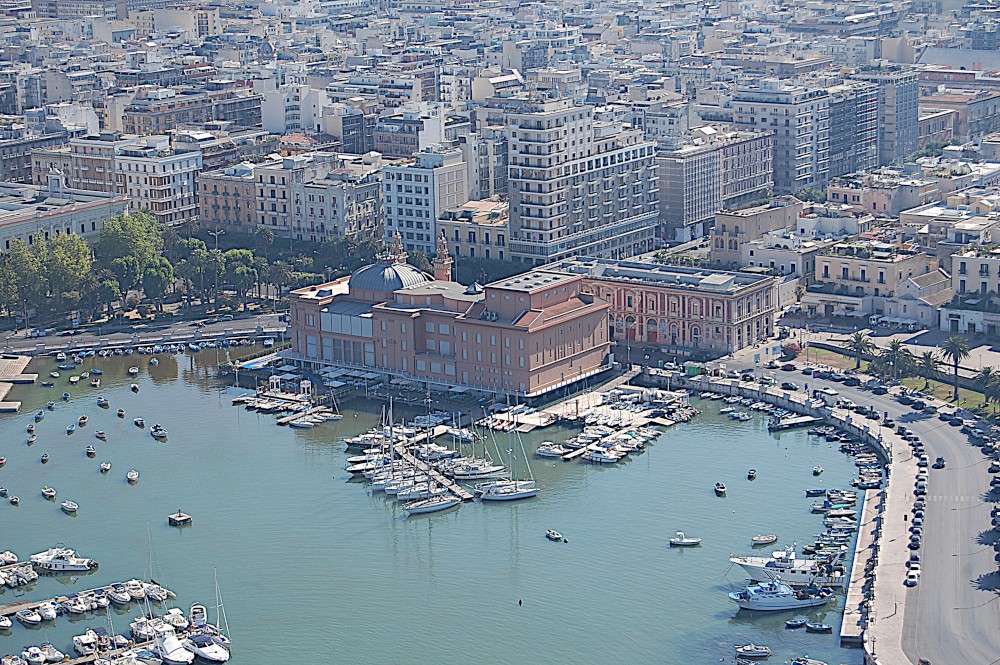In recent days in Bari, a sustainable future has been discussed, starring the representatives of alliance for the climate, Euclipa, CNR, European Commission and local institutions
For a day in Bari, the council chamber of the Palazzo di Città has turned into the beating heart of the European climatic transition. The national event of European climate pact He brought together local administrators, citizens, scientists, entrepreneurs and representatives of the institutions for an all -out comparison on environmental governance, education, sustainable companies and European climate tools.
An intense day, marked by authoritative voices and concrete proposals, which made Bari “Capital of sustainability”, in line with the recent European summit “Together in Action!” held in Brussels.
The climate at the center of the political and civic agenda
During the works, a shared path to a more sustainable future has been outlined. The discussion touched all the main nodes of the ecological transition: multilivelo governance, business innovation, access to European funds, civic mobilization.
At the opening, a touching moment: Domenico Pecere, ambassador of the European Clima pact, wanted to remember the disappearance, which took place in those hours, of the sociologist and activist Karl-Saldwig Schibel, coordinator of Alliance for the Italy climatedefining it “A very influential figure in the action for the climate, both at European level and in Italy”.
In his speech, Pecere then highlighted the importance of Paec (Action plans for sustainable energy and climate), fundamental tools for the transition at the municipal level: “The landscapes are strategic tools, but often the municipalities have difficulty manufacturing them. There are funds, it serves political will by administrations”.
Recalled that the European Commission, through programs LIFE, Horizon Europe And other tools makes considerable resources available. In this context, the Puglia Region stands out for its active role: “The political and administrative responsibility to achieve the planned actions is all of the territories “underlined Pecere, also hoping “The introduction of reward systems for the most virtuous municipalities“.
The role of citizens: information, participation, action
Luciana Favaro, president of Euclipa Italia, has emphasized the centrality of civic participation. He cited the virtuous case of the Municipality of Seregno, capable of effectively communicating its climatic plan, also thanks to the creative use of the QR Code: “A simple but powerful tool to make change visible and involve citizenship”.
Gianni Tartari, Euclipa secretary, has strengthened the message: “Combining forces is the only way to make our voice stronger”referring to the network under construction between climate ambassadors and territories, to strengthen the effectiveness of local actions.

Sustainable companies: a strategic choice, not only ethics
One of the most significant interventions was that of Marco Spontziello, a professor at the University of Salento, who advanced a concrete proposal: a European law for the recognition of sustainable companies. Based on encouraging economic data – the Benefit companies take 30% more on average – he said: “In Italy we have benefit companies. Now a competitive European model is needed, where you can choose to be sustainable becomes an economic advantage”.
The proposal will be formalized in a document to be submitted to the European Commission.
Education and institutions: prepare the present, not just the future
The regional councilor for the environment, Serena Triggiani, illustrated the work of the Puglia Region on the climate change front. Among the topics touched, the regional strategy of adaptation to climate change and the new environmental education plan, tools built on solid scientific bases: “Puglia will be one of the most exposed regions. We can no longer postpone”. And he added: “The adaptation begins with awareness”.
On an urban level, the mayor Vito Leccese reiterated the commitment of the city of Bari, talking about investments in urban green and sustainable mobility: “No city can solve the climatic crisis alone, but each municipality has a duty to do its part.” He then launched an alarm on new US commercial policies: the duties could put the European Green Deal at risk.
Finally, the intervention of the Europeaniary Antonio Decaro (former mayor of the Apulian capital) has relaunched the theme of co -responsibility: “The environment is not a slogan, but a necessity. Only with daily co -responsibility can we save the planet“, Reiterating the importance of an alliance between citizens, businesses and institutions.
Knowledge, networks, trust: climatic diplomacy makes its way
Two further interventions enriched the technical and institutional profile of the meeting. Monica Salvia, CNR researcher, illustrated the European Capacity project, focused on support for cities in the race towards climatic neutrality. In particular, he enhanced the role of the climate ambassador as a link between community policies and local territories.
Bruno Mola, of the Climate Action Directorate of the European Commission, invited to a story of climate change that is not only alarmist: “War brakes cooperation for the climate, but Europe does not retreat”.
A shared legacy: tools, awareness, vision
The Bari appointment represented much more than an event: it was a moment of synthesis and relaunching for the climatic transition in Italy and Europe. It has highlighted tools already available, shared responsibilities and the need for an integrated and cultural vision of the environmental challenge.
As Domenico Pecere recalled in closing:“We need vision, tools, but above all people: informed citizens, courageous administrators, responsible companies”.


